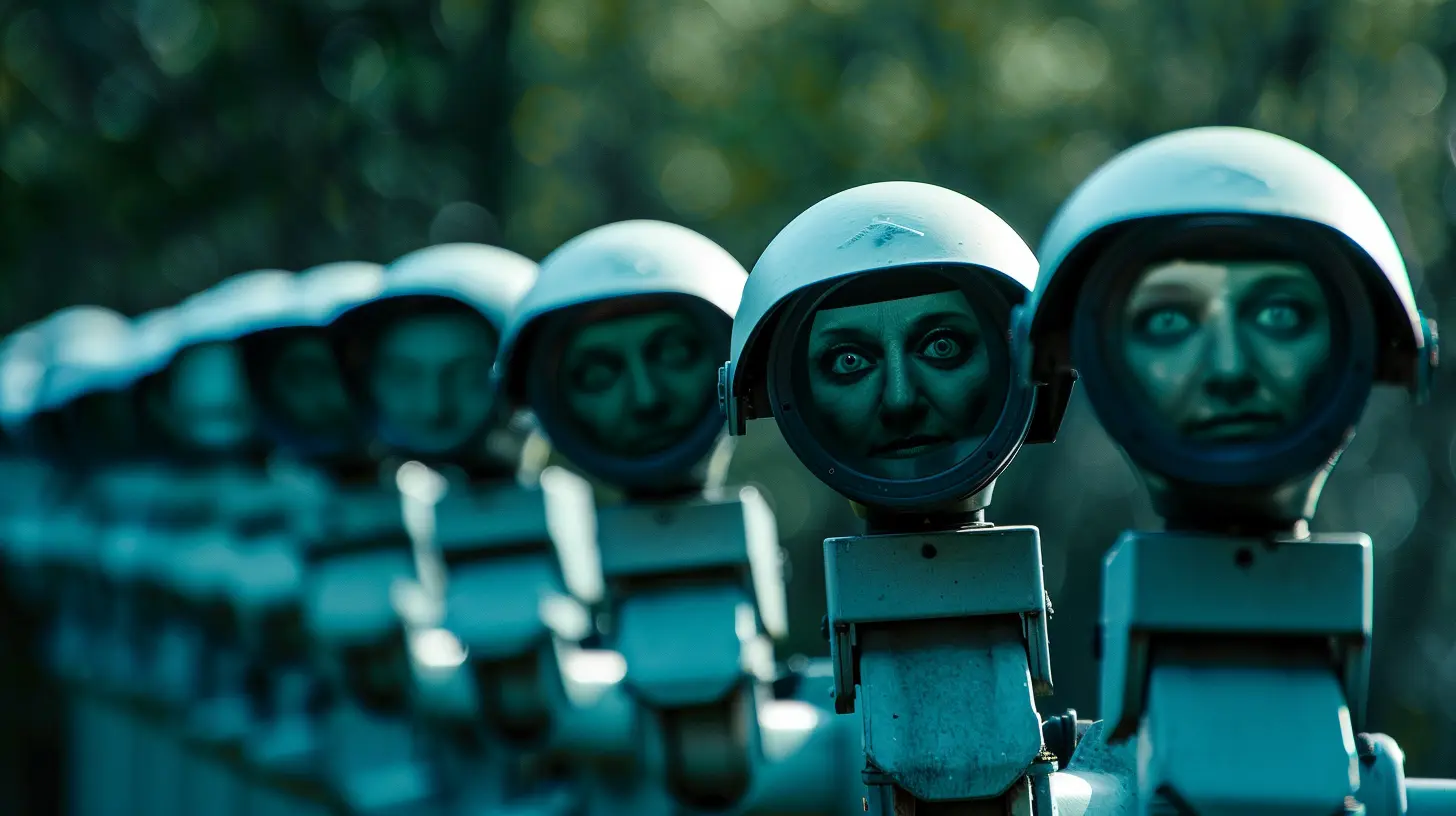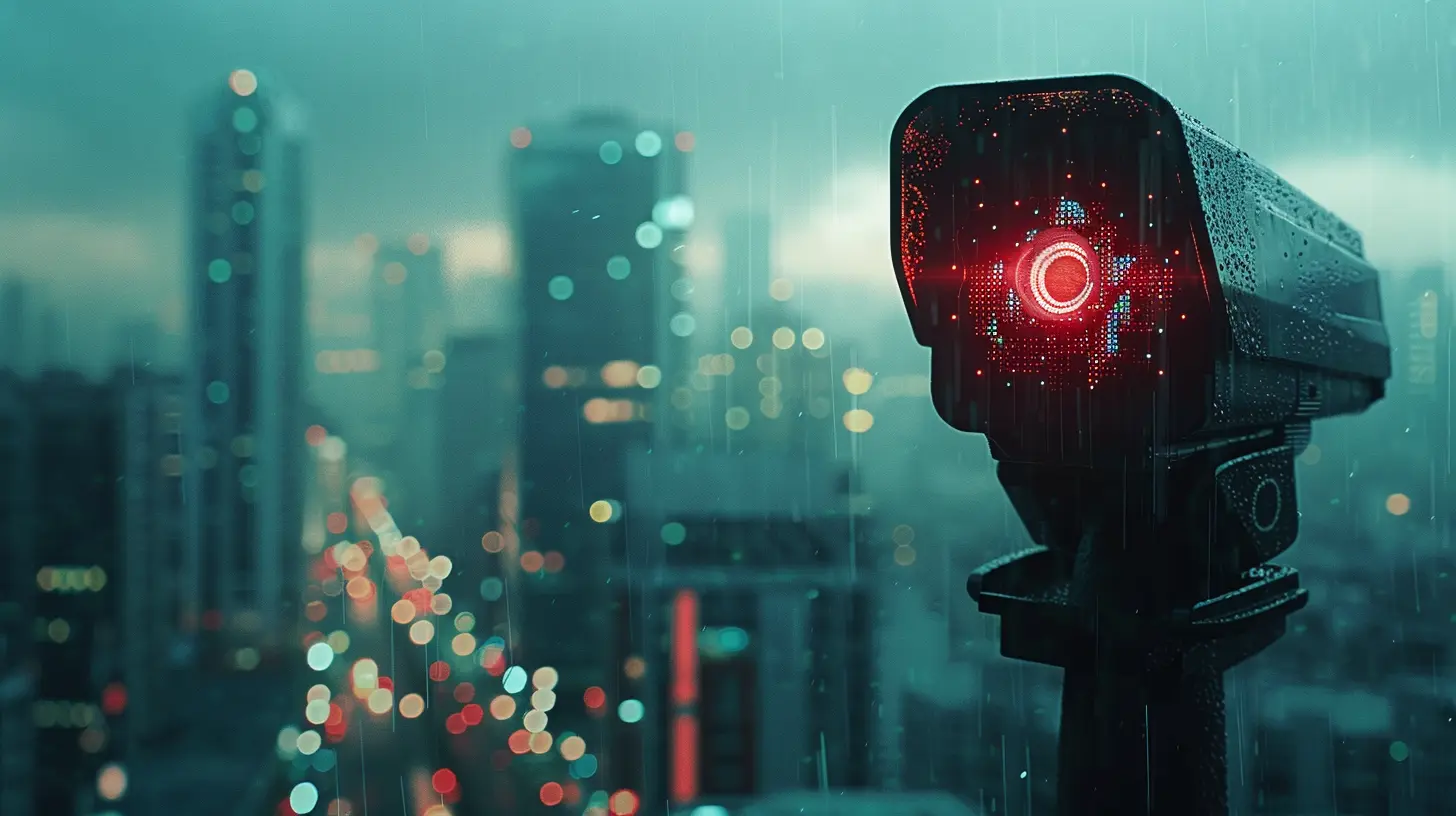The Ethics of AI Surveillance: Balancing Security and Privacy
15 June 2025
Artificial Intelligence has taken the world by storm, and one of its most controversial uses is in surveillance. You've probably heard about facial recognition cameras popping up in cities, or AI algorithms monitoring public behavior in real-time. Sounds like something out of a dystopian sci-fi movie, right? But it’s not fiction—it’s happening now.
The real question is: how do we strike a balance between keeping people safe and protecting their privacy? That’s what we’re diving into today. So grab a coffee, and let’s unpack the ethics of AI surveillance together.
🧠 What Is AI Surveillance Anyway?
Let’s start with the basics. AI surveillance is the use of artificial intelligence technologies—think machine learning, facial recognition, behavior analysis—to monitor, analyze, and even predict human behavior. It’s like having a super-smart set of eyes watching everything, all the time.These systems can be found in:
- Public security cameras
- Online platforms scanning for “suspicious” behavior
- Airports checking passenger emotions
- Retail stores tracking customer movements
Now, there’s no denying the cool factor. But with great power comes great responsibility (yep, Spider-Man knew what he was talking about).
🔐 Security: The Bright Side of AI Surveillance
Let’s be fair—AI surveillance isn’t all bad. In fact, it can save lives.Stopping Crimes Before They Happen
Some cities around the world use AI to detect crimes in real-time. Imagine a camera system predicting someone might commit theft based on their actions and alerting a security guard before it even happens. That’s not in the future—it’s already being tested.Faster Emergency Response
AI can help emergency services spot accidents faster, assess the scene, and send the right kind of help in minutes. That could mean the difference between life and death.National Security and Terrorism Prevention
Governments argue that AI surveillance helps track potential threats, prevent terrorist plots, and protect citizens. And honestly, most of us want to feel safe when we’re walking down the street or using public transport.So yes, surveillance can be a good thing. But here’s the kicker—at what cost?
🕵️♀️ Privacy: The Slippery Slope
Here’s where things get murky. While AI is great at identifying threats or speeding up law enforcement, it can also cross serious ethical lines.Constant Monitoring Equals No Privacy
Imagine walking through a city where cameras recognize your face everywhere—on the street, in a store, even entering your home. Creepy, right? That’s what’s happening in countries using AI surveillance on a wide scale. There's barely any room left for personal privacy.Consent? What Consent?
One of the big problems is that a lot of this surveillance happens without our permission. You’re being watched, analyzed, and stored in databases—and you didn’t even say “yes” to that.That’s like someone rummaging through your phone without asking. It just feels wrong.
Bias in the System
AI is only as unbiased as the data it’s trained on. Unfortunately, many AI systems have shown racial or gender biases. If an algorithm is more likely to mark people of color as “suspicious,” that’s more than unethical—it’s dangerous.That means innocent people might get profiled or even wrongly accused. We’ve seen that happen too many times already.
⚖️ The Ethical Tug-Of-War: Where Do We Draw The Line?
So now we’re standing at a fork in the road. Do we go all-in on AI surveillance and risk becoming a surveillance state? Or do we slam the brakes and potentially miss out on tech that could prevent harm?Let’s break down the main ethical concerns and how we might address them.
1. Transparency Is Key
People deserve to know when and how they’re being watched. Governments and companies need to ditch the secrecy and be open about surveillance practices. If you’re gonna set up facial recognition in a city, at least let citizens know.2. Informed Consent Should Be the Norm
As users, we should have control over whether we want to be monitored. Just like we click “accept” on cookie banners, why not have clear options for opting out (or in) of surveillance?Sure, it’s tricky in public spaces, but it’s not impossible.
3. Limit Data Collection
Some surveillance systems collect way more data than they need. Think of it as collecting the entire ocean when all you really needed was a glass of water.Only gather what's necessary, and securely delete it when it’s no longer useful. Data minimization is an ethical must.
4. Independent Oversight and Accountability
Who’s watching the watchers? Right now, not enough people.There should be independent watchdogs making sure surveillance tools are being used ethically—and laws to hold violators accountable. No exceptions.
🌍 AI Surveillance Around the World: A Mixed Bag
Different countries have taken different roads when it comes to AI surveillance. Let’s look at a few examples.China: High Security, Low Privacy
China is probably the most well-known case—cities use vast networks of AI-enabled cameras to monitor citizens. It’s helped maintain order but at the major cost of personal freedom.Critics say it’s being used to suppress dissent and track minority groups, raising massive ethical red flags.
United States: Torn Between Safety and Rights
In the U.S., AI surveillance is more fragmented. Some cities embrace it; others ban it, especially facial recognition.There’s ongoing debate over the pros and cons. Civil rights organizations keep pushing for privacy protections, while law enforcement wants more tools to fight crime.
European Union: Privacy-Centric Approach
The EU has strong privacy laws (hello, GDPR!). They’re cautious about how AI gets used in surveillance, and they require companies and governments to follow strict rules.It’s a model that tries to strike that elusive balance between safety and freedom.
🧩 The Role of Big Tech: Friend or Foe?
Let’s not forget the tech giants. Companies like Amazon, Google, and Microsoft have developed powerful tools used in surveillance systems.Some have pulled back after public backlash—remember when Microsoft decided to stop selling facial recognition tools to police? That shows the power of public opinion.
But many others still push these technologies without clear ethical guidelines. That’s why users and regulators need to keep a close eye (pun totally intended).
💡 What Can We Do About It?
Ok, now you’re probably wondering what role we—ordinary folks—can play in this complex drama.Here’s the thing: you have more power than you think.
Speak Up
Voice your concerns to local leaders, support advocacy groups, and share what you’ve learned with friends and family.Public pressure works.
Stay Informed
Tech changes fast. Keep up to date on how AI surveillance is evolving. Read articles, listen to podcasts, and follow ethical AI experts online.Knowledge is your best defense.
Support Ethical Tech
Use products and services from companies that respect privacy. Look for those that follow ethical practices and don’t sell your data like bargain-bin DVDs.💬 Final Thoughts: Striking the Right Balance
Look, AI surveillance is here to stay. The genie’s out of the bottle. It’s not about stopping it—it’s about guiding it in the right direction.Security and privacy don’t have to be enemies. With the right values, transparency, and accountability, we can have both.
It’s all about balance. Like walking a tightrope, we need to stay steady and focus on what really matters—keeping people safe without stripping away their dignity and freedom.
So next time you pass a smart camera or hear about a new AI monitoring system, ask yourself: who’s benefiting, and at what cost? Because ethics isn’t just about right and wrong—it’s about asking the tough questions and not settling for easy answers.
all images in this post were generated using AI tools
Category:
Ai EthicsAuthor:

Ugo Coleman
Discussion
rate this article
2 comments
Antonia Sanders
AI surveillance challenges us to find harmony between necessary security and individual privacy rights.
June 20, 2025 at 3:26 AM

Ugo Coleman
I agree—striking that balance is vital. We must ensure that security measures do not infringe on individual privacy rights, fostering a society that values both safety and personal freedoms.
Kestrel McKale
This article compellingly navigates the complex interplay between AI surveillance, security, and privacy. It underscores the necessity for transparent regulations that prioritize individual rights while addressing public safety concerns. As technology evolves, continuous ethical evaluations are essential to ensure that surveillance practices align with democratic values and civil liberties.
June 17, 2025 at 1:04 PM

Ugo Coleman
Thank you for your insightful comment! I completely agree that transparent regulations and ongoing ethical evaluations are crucial as we navigate the challenges of AI surveillance.


